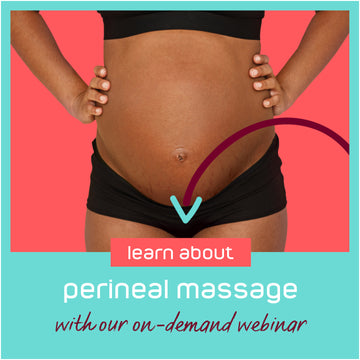Antenatal classes have long been a source of information and a way to gain insight into understanding pregnancy and childbirth for women and their partners. The way antenatal classes are delivered is constantly evolving and, due to our current national circumstances, have largely moved online. But don’t worry, you can still gain a wealth of information from online antenatal classes. As well as them being informative, some are also interactive.
Most women will have started researching which antenatal classes to take during their second trimester, as the best time to start them is during the third trimester (after 28 weeks). This will ensure that the information will be fresh in yours and your birth partner’s minds as you approach your labour and birth. You can also choose to do online classes with those in your locality, so when restrictions are eased you will have the opportunity to meet your online antenatal class buddies and their new arrivals.
The benefits of taking antenatal classes are to help you gather knowledge about all things pregnancy, birth and caring for your newborn. During your maternity care you will need to make many decisions concerning yourself and your baby. If you are well informed about your options, you will feel more confident about making the right choices for yourself and your baby. This will in turn mean that you feel more empowered and able to start family life with your new baby feeling more confident. A woman who is empowered and engaged with her choices during this pivotal time in her life is one who will recover better and adjust to family life more easily.
There are many antenatal classes available. Choose a class which suits yours and your partner’s needs and which is run by an experienced and qualified antenatal teacher. Online and face-to-face classes should offer the opportunity for you to engage with other couples, ask questions and address your queries to the antenatal teacher to enable you to learn more.
What to look for when choosing your antenatal classes
Your antenatal classes should cover key topics surrounding preparing for labour and birth and prepare you for the realities of all types of childbirth. They should also cover your rights and choices in childbirth.
As a guide, a comprehensive package should cover the following topics:
Making a birth plan
The topics you cover during your classes should give you enough information for you to gain an understanding of what would be important to you during your labour, birth and the immediate postnatal period. Once you know the options, as well as your rights and choices, you will have the basis for making your own plan for your labour and birth. A good quality antenatal class will not only discuss relevant topics but should also be up to date with the latest evidence-based research to help you decide what things are right for your labour, birth, and maternity care.
Preparing for Labour and Birth
This should provide you with an understanding of how labour starts and what the signs to look out for are. It should also explain the intricate role that hormones play in this process, how they may be inhibited and how to promote the hormones which help labour and birth to progress effectively. You should also be informed about latent/early labour, active labour and the different stages you can expect to go through in labour.
Pain relief
This part of your classes should cover all the forms of pain relief you can use throughout labour. From non-pharmacological (natural methods such as massage, water, and TENs) to pharmacological (prescribed medicines such as gas and air, opiates, and epidural). Classes should explain the advantages and disadvantages of all the available options, should you need them, as labour and birth can be unpredictable.
Classes should also cover how your environment can impact upon your labour and how to adapt it to work well for you. What equipment you can expect to use at home, as well as at a birth centre or on a labour ward.
As induction of labour is now offered to women more frequently, your classes should prepare you for what to expect during this process.
Giving birth
As touched on previously, we can plan for the birth we want, but labour and birth can sometimes not follow your original plans. Classes should give you detailed information surrounding the different ways that babies can be born, including spontaneous vaginal birth, assisted birth and caesarean section birth. This will help to prepare you for any eventuality and, should things go differently to your plan, you will have an understanding of what this can involve.
Your classes should also provide you with information on delayed/optimal cord clamping, delivery of the placenta, skin to skin and the golden hour after the birth. Breastfeeding information should feature, but more detailed classes on this should also be available for those wishing to further explore their options for feeding baby.
Other information
These topics are by no means exhaustive. Classes should also be able to offer you additional resources and signpost you to credible information available on perineal massage, colostrum harvesting, sterilising equipment and formula feeding, caring for your newborn and what is involved in your recovery process after the birth.
Antenatal classes should be responsive and flexible to accommodate the needs of their participants. Whilst the above is a general guide, an experienced antenatal teacher will be able to subtly adjust her classes to suit the needs of those attending. They should also provide you with an excellent opportunity to help you build relationships and lasting friendships with other parents-to-be in your locality.
Summary
Choosing your antenatal classes carefully, so they accommodate your learning needs, can help you plan well for your labour, birth and the postnatal period with your baby. Although there is much to learn in preparation for your birth and new arrival, your antenatal classes should also be interesting and fun and help to provide you with the opportunity to connect with others.







